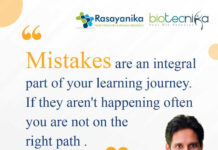Research Interview Tips – How To Talk With Recruiters An Early-Career Researcher
As a researcher who is embarking on a new journey, talking with recruiters should be considered as an important step and should not be taken lightly. In fact, it should be taken as a vital part of not only landing a job but also making sure that you are making a good impression.
To help you, here are some of the tips on how you should be talking with recruiters during your early career stages.
Talk about yourself, not about your research
We all make mistakes. But we can avoid them. According to recruiters, doctorate-degree holders usually focus on making a mark through their presentation. In other words, they are more worried about what recruiters would think of their presentations and not about what these same people might think of themselves.
In fact, one should know that a successful thesis defense would suffice. It would prove that you are an expert or a specialist in that particular field. There is no need to impress the recruiters with that especially if you have already been recognized by your peers.
What a recruiter is looking for is your interest in the job.
What value are you willing to lay on the table. What makes you valuable to the company? Will your personality fit the company’s culture? They’d like to know about you as an individual, and this includes discussing your passion, your dreams in life, your goals. Practice that.Also, it helps that you understand the hiring process yourself. It’s like doing research all over again, but this time, the subject is about the hiring process. Once you are able to understand the process, then you won’t take anything for granted, including filling out the form when applying online. This was san important Research Interview Tips.
You must understand the importance of reading instructions carefully and filling out forms as best as you can. Recruiters receive hundreds, if not thousands, of emails every day, and they have to weed out the rest in order to keep the best. If you don’t make it as detailed as possible, then your chances of getting noticed are low. Also, if you are referred by someone connected to the company, be sure to include and mention that too.
Now that we have that settled, let’s take a quick moment to enumerate –
Five mistakes candidates usually make when talking to recruiters.
1. No knowledge of who they’re speaking to.
Recruiters come in different roles and motivations, and you’ve got to learn how to read them. You will need to learn how to differentiate between someone who is just trying to hire you based on the data on your resume and someone who really is trying to analyze your personal skills -the way you speak, the way you carry yourself, the words you choose while communication, your appearance, etc. So always be professional, but don’t forget to be yourself.
2. Uncertain of your career path.
If you don’t know what path you are taking, how will you impress the recruiters? Keep in mind that a recruiter’s job to select the needle from the haystack. They don’t map out your career strategy for you. So it’s your job to stand out in and sell yourself with specific highlights.
You have got to have concrete answers to specific questions. In order to do this, you’ve got to do your research. Understand what the company needs. Highlight the skills you think are most valuable to the company. Be straightforward. Do not waste time highlighting skills that they are not looking for?
Most importantly, before the interview, do something for yourself, and this involves your social media standing. Recruiters tend to check you out on social media platforms and see what you’ve been up to recently. They might even go as far as checking your statuses or photos as these might tell something about you as a person. With this being said, be sure to be conscious of how you perceive yourself online. Take extra time polishing your professional social media account, e.g., LinkedIn, because recruiters have really high chances of checking them out. Be in control of what they could stumble upon.
3. You are an extreme.
Any kind of interview can be tiresome for both the recruiter and you as the applicant. You have to treat every conversation with a recruiter as a means of evaluation, especially since some of the recruiters are your only chance of getting an entry in the company or in the industry, all the more your dream job.
You need to understand that recruiters usually do not go for people who are either overly-professional, over-appeasing, or plainly irritable. Of these three, the overly-professional is the most common. Do not be this kind of applicant – another important Research Interview Tips.
Show them who you are as a person. Genuineness is the key. Learn when to show a side of your personal self, and understand that extremely professional applicants don’t please both the recruiters and the managers. This is because they would have a difficult time assessing where you would fit in the company. If it’s a good fit for you, and you know it, but your take it anyway, then you’re in for real trouble. You’ll be looking for an exit in just a short span of time.
4. The over-appeasing applicants.
These people are the most frustrating to recruiters. They have the ability to say to make recruiters excited to represent them, only to be disappointed when called with a phone interview request. Do not be this person. Be sincere, and be diligent.
In simple terms, if you like the job, go for it and exert every effort there is. On the other hand, if you are not into the job, don’t make the recruiters think that you are. You don’t want to be wasting both your time and the recruiters. You don’t want to do that especially because the recruiters, again, are sometimes the only people who will pave the way for an opportunity.
They are masters in staffing. So treat every interview or conversation the best that you can and build a working relationship with recruiters. You need them.
5. You’re not transparent.
Isn’t it ideal to have recruiters following up with you and letting you know how your application is going? Wouldn’t it be a dream come true to have them update you on what’s going on in the back-end process as it unfolds?
Well, they wish you could be like that too! They would love for you to do your part. So be diligent and ask for follow-ups (but be sure not to be too often). This will let them remember you.
It’s a give and take relationship.
You let them know any updates about you and they do the same. They don’t really care if you’re talking to other recruiters, because they already know that, but they’ll appreciate your honesty.
6. You’re unavailable.
Timing is everything, even in the hiring process. So your goal is to let time work for you and not the other way around.
What we’re trying to say here is to always make yourself available. Respond within half-business day. Answer their calls. Submit the requirements on time. If you really want this to work for you and if you are dead-serious about your job hunting, then do your part. Check your phone always and respond as soon as you can. Recruiters like it when you are available. Plus, you wouldn’t want to miss your dream job because of timing, right? would rather work with you than have you miss the opportunity of a lifetime because of timing.
Plus, if you make yourself available most of the time, then you will be perceived as someone who is diligent and determined to get the job. Do not request a reschedule as much as possible. You can avoid this by blocking certain hours of the day when they can easily reach you. Managers often give offers to those available and qualified candidates.
It is your job to make it easy for them. Make this your priority and make the timing work for you.
Now, let’s go back to the main topic of this article.
Be aware of your transferable skills.
Whether you are looking for a job or on your way to getting that dream job, you have to learn what your transferable skills are. Bridge the gap between the skills that you already have to that of the skills required for the job. Believe it or not, you have the ability to screen the recruiters who you want to help you build your career. Thus, when a recruiter invites you for an interview, always approach the conversation with excitement and curiosity.
Most of the time, Ph.D. holders are not aware of their transferable skills. This is a fact. They often do not know that because of their research training, they develop several skills. Most of these skills fall under the umbrella of transferrable skills. This is one of the most important Research Interview Tips.
As academic jobs have recently become more difficult to acquire, it is undeniable that help is needed. There is a crucial need for doctoral candidates to be able to identify their soft skills so that they can sell them to the recruiters.
Identify your weaknesses and strengths and work on both of them.
Bottom line: Do not stop learning and growing. These skills all come in handy for several positions worthy of your time and effort.
On the other hand, if you do not have any access to these networks, programs, and opportunities, then you can start working with yourself.
Few More Research Interview Tips:
– First, try to translate what you’ve learned during your doctorate and make it relevant outside of academia. For example, doctoral holders have a language of their own that only their peers would understand. It would be great if you are able to translate these words into terms that everybody else can understand. This is important when you become part of the company. Look for online articles or even courses that will help you with this challenge. We’re sure there are a lot of available resources that are within your grasp.
– Second, create opportunities and don’t wait for them to be presented to you. You can organize events and share your knowledge with others. Of course, you might need to partner with non-government units or public entities, but this is a great area that you should explore. Doing this will help you discover new things that could diversify your work, your network, and your skills. It’s would become a training ground for you to enhance those skills and also discover new ones you never thought you are capable of developing, such as event organizing and event team management. You can then include these on your CV.
The academic world can be stiff and challenging in one way or another. So if you are a student, do your best to grow. Open your eyes to the things that are available and are within your reach.
Do not hesitate to get in touch with the industry and other non-academic employers or seek out some assistance in the area you are not confident in.
Challenge any preconceptions you may have by going and talking to them. Do not be afraid of interviews and meetings. Do not fear recruiters.
Remember, it is more difficult to find the right person for a job. In other words, the more difficult role is to look for someone like you.
So relax a little bit, attend that interview, and make a good impression.
All the best in your endeavors!
Keywords: Research Interview Tips, How to handle research interview, how to talk to recruiters during a research interview as a fresher.



































Sir if you give me a chance in nasa i will sure golden work done for nasa